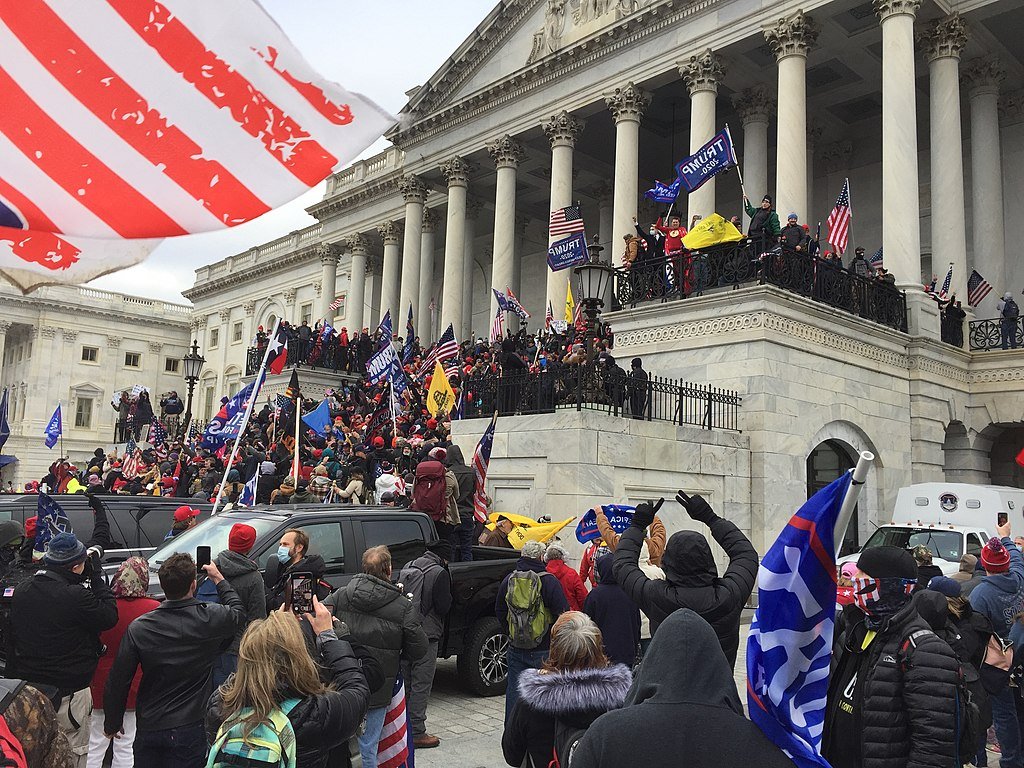The unease across North America was palpable on January 6th, 2021. Whether you were watching the news, listening to the radio while driving home, or getting updates on Twitter, everyone was in disbelief as angry supporters of Donald Trump stormed the United States Capitol. It seemed incredulous that a group of pro-Trump rioters could have the boldness to wreak such havoc and succeed.
But our shock on the 6th was not justified: history and literature has warned us for centuries that discrimination-based tensions always rise to the surface, and that beliefs in supremacy often result in danger to those that don’t fit the mould. We should’ve been expecting a situation like this, due to the racist nature of the attackers (people that support Trump so avidly are almost always racist.) Racial tensions have been bubbling in the United States for decades, but they reached a boiling point this past summer with a resurgence of the Black Lives Matter movement. This wasn’t our only warning. Literary stories of violent injustice have time and time again mirrored what we’re facing now. Look, for example, at Margaret Atwood’s The Handmaid’s Tale.
The Handmaid’s Tale is undoubtedly a story of injustice. It follows Offred, a woman under the patriarchal dystopian rule of Gilead, who is enslaved to be a child bearer. This story defines gender injustice rather than racial, but follows the same pattern of today’s challenges, starting with an event that parallels the attack on the Capitol.
In The Handmaid’s Tale, the emergence of The Republic of Gilead was spurred by an effective coup d’etat by the leaders of Gilead, the Sons of Jacob, during which they “shot the President and machine-gunned the Congress… the entire government, gone like that…” (Atwood 162). Sound familiar? It should. If Capitol security had not been so quick to evacuate members of the Senate, including Vice President Mike Pence and Vice President-elect Kamala Harris, maybe we would have faced a Handmaid’s Tale-esque situation of assasination. After all, many of the rioters were carrying guns and homemade explosives. But an even more prominent parallel between the Sons of Jacob and the Capitol attackers is their beliefs.
The standout belief among Trump’s most resolute supporters is their white supremacist ideology. The Capitol rioters are the same people who praised Trump’s racist immigration laws and his numerous racist statements during his presidency; denounced the Black Lives Matter movement and countered it with the mocking statement “All Lives Matter”; and continued to not care when black people were murdered by the police time and time again, but rather praised the officers who did so. I’m scared of these people; we all should be.
These rioters’ opinions are reflected in the obvious ones of the Sons of Jacob. For these men, having rank above all women is a fulfillment of their belief in male supremacy. This is exactly the belief of Trump’s army of white supremacists, just in terms of race rather than gender. Just as the Sons of Jacob are living in their own personal utopia while the women below them are in a tortuous dystopia, these white supremacists believe that the world should be made to suit their beliefs directly. Regardless of the common good, they care only for their own benefit and fulfillment of their personal ideology. The desire for white supremacy is directly achieved by having a white supremacist in high office; the loss of the rioters’ grand wizard spurred their attack. Therefore, these two instances are equal; one is a belief in male supremacy, the other in white supremacy - but they’re cut from the same cloth.
The Trump-crazed attackers of the Capitol compare to the Sons of Jacob in many ways. But this concept of supremacy, whether of skin colour or gender, is the backbone of all their similarities. When strongly believed in by a group of people, supremacy can have incredibly dangerous results for those outside of their ideal. The Sons of Jacob’s belief in male supremacy in The Handmaid’s Tale is devastating to all women, just as today’s white supremacists’ beliefs have also been devastating. White supremacy has taken lives, and the attack on the Capitol is only one example of the danger it brings. Both events, the fictional and the real, show that no matter how beneficial something is for the ideology of one group, it is always detrimental to others that don’t hold the same belief. Thus, the Capitol attack and the fictional reign of the Sons of Jacob are reason enough to be apprehensive of all supremacists, no matter what they stand for.
